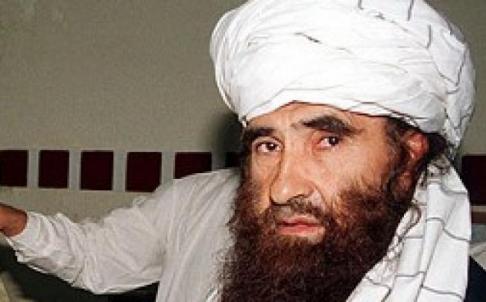
Dual Blows Imperil the Future of the Cross-Border Haqqani Network
Publication: Terrorism Monitor Volume: 10 Issue: 17
By:

Two recent events seem to have shaken the Haqqani Network to its core—the death of Badruddin Haqqani and the group’s designation as a “Foreign Terrorist Organization” (FTO) by the United States. According to a Pakistani journalist based in the Tribal Areas, the death of Badruddin Haqqani was more of symbolic and psychological impact while the FTO designation by the United States hit the group’s soft financial underbelly. “There is no shortage of people who can replace Badruddin Haqqani but there are no countries that can replace the lost [support from some] countries as a consequence of the FTO designation.” [1] Though reports of Badruddin’s death were initially denied by Taliban spokesman Zabihullah Mujahid, they were later confirmed by Badruddin’s family (Ansar1.info, August 26; Khaama Press [Kabul], August 27).
The cross-border Haqqani Network keeps its identity intact within the Taliban Movement. It also has independent ties with other terrorist groups such as al-Qaeda and Lashkar-e-Taiba. According to Pakistani journalist Wajahat Khan: “The network is, literally, a bit like a crime family. Lots of cousins and uncles dominate the top tiers of leadership, specializing in different roles, skills, regions and formations” (Express Tribune [Karachi], September 8).
Although Badruddin’s brother Sirajuddin was considered senior to him in the network hierarchy, Badruddin was heavily involved in kidnappings, extortion and military operations in Afghanistan. According to a security official based in the tribal areas, Badruddin was in-charge of day-to-day operational details such as recruiting and training suicide bombers for southeastern Afghanistan (including Kabul). [2]
The Haqqani Network is known to have a wide range of legitimate business interests in Pakistan as well as some Middle East countries. There is no immediate threat to their business interests in Pakistan as Islamabad is determined not to abandon them. Although it became quite clear more than a month ago that the United States was about to take action against the Haqqani Network, Pakistan did not take any action against the group itself. Neither were the Haqqanis worried. According to a Pakistani official, “They felt fairly assured about their business and financial interests in Pakistan. However, they have taken some preliminary steps to secure their interests and accounts in some Middle East countries.” [3]
Pakistan believes that the FTO designation in the wake of Badruddin Haqqani’s death is meant to send a clear message. It is commonly believed in Pakistan that high profile actions against the Haqqani Network are basically aimed at entrapping Pakistan. According to a civilian official working on terrorism-related matters, the United States “could have taken these steps a long time ago but did not.” The reason for the delay was that the United States “wanted to work with Pakistan. Now, it makes it a lot easier for the United States to designate Pakistan as a state sponsoring terrorism.” [4] Some officials predict that bad days are ahead for Pakistani-American relations in the wake of the FTO designation: “Frankly speaking, any decision by the U.S. to declare the Haqqani network a terror group will not be a good sign for future Pakistan-U.S. relations. Any such decision will take the relationship back to square one, ruining the improvement seen in ties between the two countries during the last couple of months” (AFP, September 7).
The FTO designation is likely to make any talks between the United States and the Haqqani Network more difficult, if not impossible. Combined with the alleged killing of Badruddin, hopes have dimmed of any talks between the Haqqani Network and the United States. According to a Pakistani official, there was a section in the network which was supportive of the talks with the Americans and the Afghan government, but these hopes have now been dashed. [5] The public statements of the Haqqani Network also show that the group is ready to carry out reprisals. Haqqani Network commanders said that the FTO designation is likely to endanger a peaceful settlement of the Afghan conflict before the end of 2014 (Reuters, September 7).
The dual blows will shrink the space for the Haqqani Network as it will not be able to operate outside Pakistan with impunity as it does in some countries. The blows are likely to have a significant impact on its legitimate and illegitimate businesses, particularly in some Gulf countries. At the same time, it is also likely to harden its posture vis-à-vis America. At a time when some Taliban groups are reportedly ready to accept a limited US presence in Afghanistan in the post-2014 period, the Haqqani Network is more likely to oppose it.
Notes:
1. Author’s telephone interview with a FATA-based journalist who requested anonymity, September 7, 2012.
2. Author’s telephone interview with a mid-ranking security official who requested anonymity, September 5, 2012.
3. Ibid
4. Author’s interview with a civilian security official who requested anonymity, September 8, 2012.
5. Author’s telephone interview with a security official in Peshawar who requested anonymity, September 8, 2012.
Arif Jamal is an independent security and terrorism expert and author of “Shadow War – The Untold Story of Jihad in Kashmir.”





